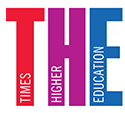UK Research Supervision Survey raises concerns about increased demands during pandemic
While the overwhelming majority of the PhD supervisors (91 per cent) polled by the UK Council for Graduate Education (UKCGE) said that they enjoyed their work with doctoral students, and 93 per cent valued this work, only 52 per cent said that their work with postgraduate researchers was valued by their institution – 40 per cent felt undervalued and 8 per cent were neutral – with 52 per cent also stating that their time with doctoral students was formally recognised in their workload allocation.
Some 71 per cent of respondents to the UK Research Supervision Survey, the largest ever survey of its kind, felt that PhD supervision had become more demanding over the past five years, with 45 per cent spending at least three hours a week or more in their capacity as main supervisors to doctoral candidates and a further one to two hours a week on those for whom they are second supervisors.
On average, each PhD student will typically receive about 60 hours a year from their main supervisor and 25 hours a year from a second supervisor, says the report, published on 8 October.
One supervisor quoted in the report explained: “I constantly feel that I am being pulled in all directions and do not have time to do anything properly,” adding that “it is not possible to do things quickly and properly where doctoral supervision is concerned – it requires higher-level thinking and more nuanced interpersonal skills.”
A significant majority (65 per cent) also felt that their supervisory responsibilities had increased during the Covid-19 pandemic, with only a third reporting “no difficulty” in managing their own mental health and well-being while also supporting their doctoral candidates, and 37 per cent reporting that the period had been either “challenging” or “extremely challenging.”
“Being a supervisor can be a pretty lonely and isolating experience, particularly during Covid,” explained one respondent, while another claimed that “students have had very unrealistic expectations this year and I have found that conflict challenging”.
“It feels like there has been a big drive to support students but not to support supervisors during the pandemic (I have a clinical role and primary-age children so have had a lot to balance) so perhaps a charter about what they can expect and where the limits are in the same way we have to abide by recommendations,” they added.
Doug Cleaver, chair of UKCGE and director of Sheffield Hallam University’s Doctoral School, said that the results show that “many of our institutions could do more to make supervisory teams feel valued and supported”.
“There is more to do to formally recognise the vital work of supervisors, and to provide environments which support them to deliver against what is an increasingly complex and multifaceted role,” said Professor Cleaver, who added that “concerted progress on these fronts is needed for those involved in research supervision to engage, motivate and inspire the next generations of researchers”.
Karen Clegg, who led the survey’s steering group, and is head of research excellence training at the University of York, said the report “exposes some cracks in the system” including the “need for training and support in the areas of diversity, mental well-being and professional and career development, and in the time, reward and recognition afforded to supervisory practice”.
“Supervisors are giving time, energy and significant discretional effort to support candidates and it would appear that this is not being adequately recognised in workload allocation models or through reward and recognition,” she said.
“If we are committed to creating mentally healthy research cultures, it is crucial that our institutions provide training and support to supervisors, and that they consider diversifying and expanding the pool of people involved in supervision to reduce any negative impact of supervisory responsibilities on supervisors’ well-being.”

0 Comments